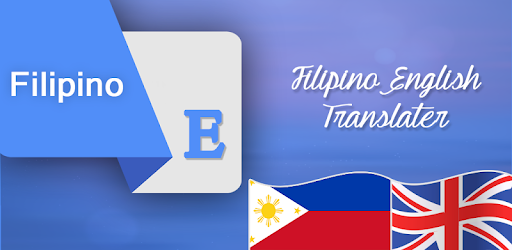Why Travelers Need English to Filipino Translation Services

The Language Landscape of the Philippines
When planning a trip to the Philippines, many travelers might assume that English will suffice for communication. After all, English is widely spoken in the country, especially in urban areas and tourist hotspots. However, the linguistic reality of the Philippines is far more complex and diverse than meets the eye.
The Philippines is home to over 180 languages and dialects, with Filipino (based on Tagalog) and English serving as the official languages. While English proficiency is indeed high in many parts of the country, particularly in business and education sectors, Filipino remains the primary language of everyday communication for most Filipinos.
This linguistic diversity can present challenges for travelers who don't speak Filipino. From navigating public transportation to ordering food at local eateries, the language barrier can sometimes hinder the full immersion into Filipino culture and society. This is where English to Filipino translation services come into play, offering a bridge between languages and cultures.
Why English to Filipino Translation Matters for Travelers
Enhancing Cultural Understanding
One of the main reasons travelers need English to Filipino translation services is to gain a deeper understanding of Filipino culture. Language is intrinsically tied to culture, and many nuances, idioms, and cultural references can be lost in translation when relying solely on English.
For instance, the Filipino concept of "pakikisama" doesn't have a direct English equivalent. It roughly translates to "getting along with others" but carries deeper connotations of social harmony and conformity that are central to Filipino social interactions. Understanding such concepts through proper translation can greatly enhance a traveler's cultural experience.
Navigating Local Areas
While tourist-centric areas often cater to English-speaking visitors, venturing into more local neighborhoods or rural areas can present language challenges. Street signs, local transportation schedules, and directions might be primarily in Filipino. Having access to translation services can help travelers navigate these areas more confidently and independently.
Interacting with Locals
One of the joys of travel is connecting with local people. While many Filipinos speak English, especially in urban areas, some may feel more comfortable expressing themselves in Filipino, particularly older generations or those in rural areas. English to Filipino translation services can facilitate these interactions, allowing for more meaningful and authentic exchanges.
Emergency Situations
In case of emergencies, clear communication becomes crucial. Whether it's describing symptoms to a doctor, reporting an incident to the police, or seeking help during a natural disaster, having access to accurate translation can be a lifesaver. Many English to Filipino translation services offer real-time translation options that can be invaluable in such situations.
Types of English to Filipino Translation Services
Digital Translation Apps
Numerous smartphone apps offer instant translation between English and Filipino. While these can be handy for quick translations of words or short phrases, they may struggle with longer sentences or colloquial expressions.
Professional Human Translators
For more accurate and nuanced translations, especially for important documents or complex conversations, professional human translators are invaluable. Many translation agencies offer services specifically tailored for travelers, including document translation and interpretation services.
Real-time Interpretation Services
Some companies provide real-time phone or video interpretation services. These can be particularly useful for on-the-spot translation needs, such as during a medical consultation or when dealing with local authorities.
Beyond Filipino: The Need for Other Language Services
While English to Filipino translation is crucial, it's worth noting that the Philippines' linguistic landscape is incredibly diverse. In some regions, languages like Cebuano, Ilocano, or Hiligaynon may be more prevalent than Filipino.
Moreover, given the Philippines' growing tourism industry and increasing business ties with countries like China, there's also a rising demand for other language services. For instance, a Chinese translation agency might be sought after by Chinese tourists or businesspeople visiting the Philippines.
Choosing the Right Translation Service
When selecting an English to Filipino translation service, consider the following factors:
Accuracy: Look for services with native Filipino speakers or those with a deep understanding of both languages and cultures.
Specialization: Some services might specialize in certain areas like medical or legal translation.
Real-time capabilities: If you need on-the-spot translation, ensure the service offers this feature.
User reviews: Check what other travelers have said about the service.
Cost: Compare prices, but remember that the cheapest option isn't always the best when it comes to accurate translation.
Embracing the Language Journey
While English to Filipino translation services are undoubtedly useful, they shouldn't replace the joy of learning a few basic Filipino phrases. Locals often appreciate when visitors make an effort to speak their language, even if it's just simple greetings or thank-you's.
"Salamat po" (Thank you) and "Magandang araw" (Good day) can go a long way in fostering goodwill and opening doors to more meaningful cultural exchanges.
Conclusion
English to Filipino translation services are more than just tools for basic communication. They're gateways to deeper cultural understanding, smoother travel experiences, and more meaningful interactions with local people. Whether you're navigating the bustling streets of Manila, exploring the pristine beaches of Palawan, or venturing into the mountainous regions of Luzon, having access to reliable translation services can enhance your Philippine adventure in countless ways.
As the world becomes increasingly interconnected, the demand for translation services, including those offered by Chinese translation agencies, continues to grow. These services not only facilitate travel but also promote cross-cultural understanding and global connectivity.
So, as you plan your Philippine adventure, consider incorporating English to Filipino translation services into your travel toolkit. They might just be the key to unlocking a richer, more immersive, and ultimately more rewarding travel experience in this beautiful archipelago.
Note: IndiBlogHub features both user-submitted and editorial content. We do not verify third-party contributions. Read our Disclaimer and Privacy Policyfor details.



